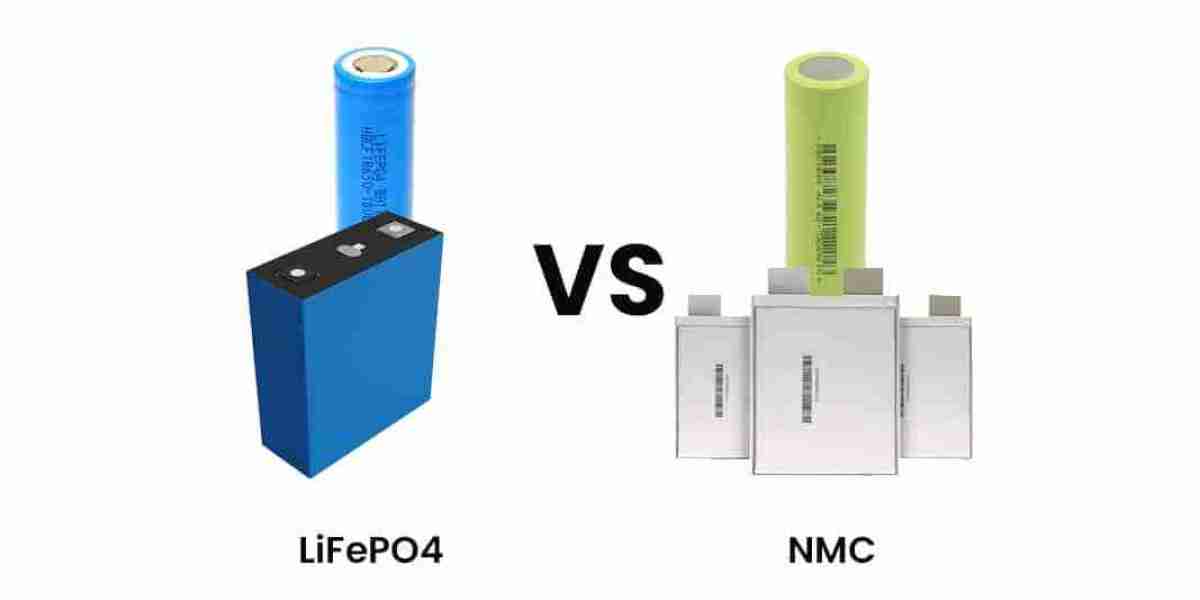In the realm of rechargeable batteries, two types stand out prominently: Lithium Iron Phosphate (LiFePO4) and Lithium Nickel Manganese Cobalt Oxide (NMC). Both offer unique advantages and are widely used in various applications. Understanding their differences is crucial in selecting the most suitable option for specific needs.

Chemistry and Composition
LiFePO4 batteries, as the name suggests, use lithium iron phosphate as the cathode material. They are known for their stable structure and high thermal stability. On the other hand, NMC batteries utilize a combination of nickel, manganese, and cobalt in the cathode, offering higher energy density compared to LiFePO4 batteries.
Performance Comparison
In terms of performance, NMC batteries generally boast higher energy density, providing more power and longer runtime in the same form factor compared to LiFePO4 batteries. However, LiFePO4 batteries offer better safety characteristics and longer cycle life, making them ideal for applications where reliability and longevity are paramount.
Application Areas
LiFePO4 batteries find widespread use in applications requiring high levels of safety and durability, such as electric vehicles (EVs), solar energy storage systems, and backup power supplies. On the other hand, NMC batteries are preferred in devices where energy density and compact size are critical, including smartphones, laptops, and portable electronic devices.
Pros and Cons of LiFePO4 Batteries
Pros:
Excellent safety profile
Long cycle life
Minimal risk of thermal runaway
Cons:
Lower energy density compared to NMC batteries
Slightly higher cost upfront
Pros and Cons of NMC Batteries
Pros:
Higher energy density
Suitable for compact devices
Lower initial cost
Cons:
Less durable compared to LiFePO4 batteries
Higher risk of thermal runaway under certain conditions
Cost Comparison
While NMC batteries may have a lower initial cost, the longer lifespan of LiFePO4 batteries often translates to lower overall cost of ownership, especially in applications where frequent replacements are impractical or costly.
Environmental Impact
Both LiFePO4 and NMC batteries have relatively low environmental impact compared to traditional lead-acid batteries. However, LiFePO4 batteries, with their longer lifespan and safer chemistry, may have a slight edge in terms of sustainability and eco-friendliness.
Future Trends
As technology continues to advance, both LiFePO4 and NMC batteries are expected to see further improvements in performance, safety, and cost-effectiveness. The choice between the two will ultimately depend on the specific requirements of each application and evolving market dynamics.
Conclusion
In the LiFePO4 vs NMC battery debate, there is no one-size-fits-all answer. Each type of battery offers distinct advantages and is better suited for certain applications. Understanding the differences in chemistry, performance, and cost is essential in making an informed decision. Whether prioritizing safety, energy density, or cost-effectiveness, there's a lithium-ion battery solution available to meet your needs.
FAQs
Are LiFePO4 batteries safer than NMC batteries?
Yes, LiFePO4 batteries are generally considered safer due to their stable chemistry and lower risk of thermal runaway.
Which type of battery is better for electric vehicles?
LiFePO4 batteries are often preferred for electric vehicles due to their long cycle life and superior safety features.
Do NMC batteries offer better performance in terms of energy density?
Yes, NMC batteries typically have higher energy density compared to LiFePO4 batteries, making them suitable for applications requiring compact size and higher power output.
Are LiFePO4 batteries more expensive than NMC batteries?
While LiFePO4 batteries may have a higher upfront cost, their longer lifespan often results in lower overall cost of ownership compared to NMC batteries.
Which type of battery is more environmentally friendly?
Both LiFePO4 and NMC batteries have relatively low environmental impact compared to traditional lead-acid batteries. However, LiFePO4 batteries may have a slight edge in terms of sustainability and eco-friendliness due to their longer lifespan and safer chemistry.



